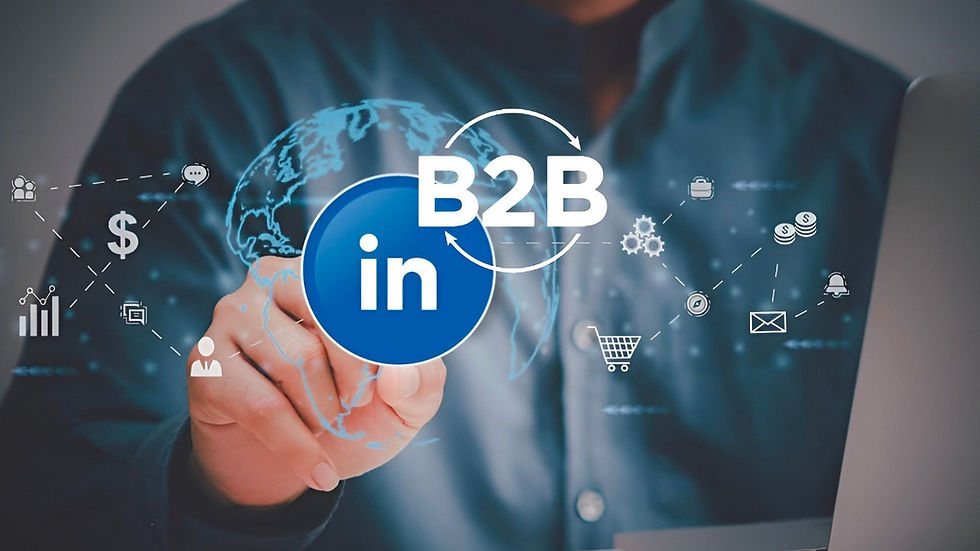How to Measure the Success of Ecommerce PPC Services in 2025
- bizionictech
- Jan 8, 2025
- 3 min read

The ecommerce landscape in 2025 is more competitive than ever, making it essential for businesses to leverage effective ecommerce PPC services. But how do you ensure that your investment in ecommerce PPC management pays off? Measuring success goes beyond clicks and impressions it’s about aligning your campaigns with your business objectives. Here’s a comprehensive guide to measuring the success of your ecommerce PPC services in 2025.
Define Clear Objectives
Before diving into metrics, it’s crucial to outline what success looks like for your ecommerce PPC service campaigns. Whether you’re aiming to increase revenue, drive traffic, or enhance brand visibility, having clear goals will guide your evaluation process. An experienced ecommerce PPC agency can help you set realistic KPIs that align with your objectives.
1.Common Objectives for Ecommerce PPC Services:
Increase Sales: Measure conversions and revenue growth.
Boost ROI: Focus on lowering cost per acquisition (CPA) while increasing return on ad spend (ROAS).
Drive Traffic: Evaluate the number of qualified visitors to your website.
Expand Market Reach: Use metrics like impression share and audience engagement.
2. Track Conversion Metrics
Conversion tracking is at the heart of ecommerce PPC management. It’s not enough to generate clicks; those clicks need to translate into sales or other meaningful actions. Use tools like Google Ads, Meta Ads Manager, and your ecommerce platform’s analytics to monitor conversions.
Key Conversion Metrics to Monitor:
Conversion Rate: The percentage of clicks that result in a purchase.
Cost Per Conversion (CPC): The amount spent to acquire one customer.
Revenue Per Conversion: The average value generated per sale.
3. Evaluate ROAS (Return on Ad Spend)
ROAS remains one of the most critical metrics for assessing the performance of ecommerce PPC services. It measures the revenue generated for every dollar spent on advertising. A high ROAS indicates that your campaigns are driving profitable results.
Formula for ROAS:ROAS = Revenue from Ads / Cost of AdsIn 2025, advanced ecommerce PPC agencies use AI-driven tools to optimize ROAS by analyzing consumer behavior and adjusting campaigns in real time.
4. Monitor Customer Acquisition Costs (CAC)
Knowing how much you spend to acquire a customer is vital for maintaining profitability. Compare your CAC against the lifetime value (LTV) of a customer to ensure your ecommerce PPC efforts are sustainable.Tips to Reduce CAC:
Refine audience targeting.
Use remarketing campaigns to re-engage potential customers.
Optimize ad creative’s and landing pages.
5. Analyze Click Metrics
While conversions are the ultimate goal, click metrics provide valuable insights into the health of your campaigns. Metrics like click-through rate (CTR) and cost per click (CPC) can reveal whether your ads resonate with your audience.
Key Click Metrics:
CTR: A high CTR indicates that your ads are relevant and engaging.
CPC: Lowering your CPC without compromising quality can improve profitability.
6. Assess Campaign Scalability
In 2025, scalability is a vital consideration for ecommerce PPC management. A successful campaign should offer room for growth without a proportional increase in costs. Monitor metrics like impression share and search volume to identify opportunities for scaling.
7. Measure Lifetime Value (LTV) of Customers
The true measure of ecommerce PPC service success lies in long-term profitability. Understanding the lifetime value of your customers can help you evaluate whether your campaigns are attracting high-quality leads.
LTV Insights:
Compare LTV with CAC to ensure a positive return.
Use remarketing and loyalty programs to maximize LTV.
8. Leverage Advanced Attribution Models
In 2025, multi-touch attribution is essential for accurately measuring ecommerce PPC service success. Simple last-click models no longer suffice. Advanced attribution models give credit to various touch points in the customer journey, offering a more holistic view of campaign performance.
Tools for Advanced Attribution:
Google Analytics 4 (GA4)
Third-party PPC platforms with AI-driven attribution modeling
9. Optimize for Customer Experience
Beyond metrics, the quality of the customer experience plays a significant role in ecommerce PPC success. Ensure your ads, landing pages, and overall shopping experience is seamless and aligned.
Page load times
Mobile responsiveness
Checkout process simplicity
10.Partner with an Expert Ecommerce PPC Agency
The complexity of PPC advertising in 2025 makes partnering with an expert ecommerce PPC agency a strategic choice. Agencies provide access to cutting-edge tools, industry insights, and dedicated professionals who can optimize your campaigns for maximum ROI.
Benefits of an Ecommerce PPC Agency:
Advanced analytics and reporting
Expertise in managing multi-channel campaigns.




Great insights on measuring the effectiveness of ecommerce PPC campaigns. Clear KPIs like ROI, conversion rates, and customer lifetime value are essential for long-term success. For businesses looking to refine their paid advertising strategies, partnering with a trusted ppc agency dublin can make a big difference in achieving consistent and measurable results.